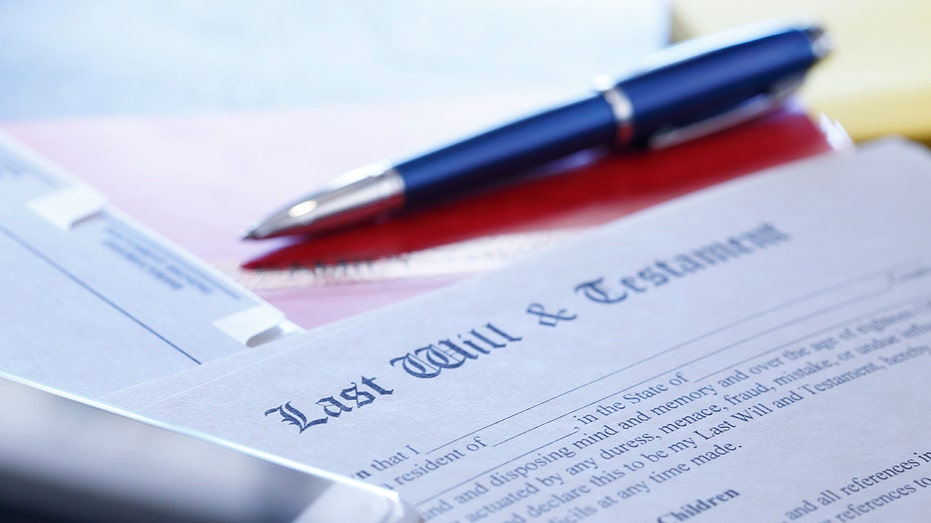Carol Roth: Here are the top estate planning mistakes to avoid
Nobody likes to plan for events like aging, incapacitation or death. But failing to do so can cause families burden and grief, thousands of dollars, and hundreds of hours.
It is estimated that more than 50 percent of all Americans don’t have a will, and in our Future File business, we have estimated that less than 10 percent of the U.S. population has a complete legacy and wishes planning system.
Preparing for life’s unexpected events is crucial but can often be a difficult process to navigate. Here are the top estate planning mistakes to avoid, according to industry experts:
1. Not having a will (or one that can be found)

The leading mistake is simply not having a will in the first place. As Kelly Dancy, an attorney at Walny Legal Group, says, “Estate planning is critically important to protect an individual, their family, and their hard-earned assets, during their lifetime, during any period of incapacity and upon their deaths. Everyone needs estate planning documents, regardless of the amount of assets that they have.”
Despite knowing this, too many people put off gathering key documents together. Tim Hewson, president of USLegalWills.com, believes that “waiting for a ‘more appropriate time’ to put together your will is a mistake. Everybody should have a will. It should be written when you are young and updated throughout your life as your circumstances change.”
In addition to having a will, it needs to be findable. The Wall Street Journal says that the biggest estate planning mistake is simply losing a will. Make sure your family has access to the documents that express your future wishes.
2. Neglecting to choose and update appropriate beneficiaries

When you have an asset that has a beneficiary designation, that will supersede anything written in a will. Ryan Repko, a financial advisor at Ruedi Wealth Management, suggests that you review your 401(k), IRA, life insurance and any other accounts with beneficiaries after major life events.
He says, “The most grievous example [of a beneficiary issue] is when a married couple divorces, then remarries without changing the beneficiary to the new spouse. In this all-too-common and completely avoidable scenario, the ex-spouse is legally entitled to the assets, and a lengthy legal battle ensues on behalf of the new spouse and/or the children to claim the assets.”
There are financial implications to think through as well. Sheri E. Warsh, a partner at Levenfeld Pearlstein, LLC also shares, “Without a proper beneficiary designation, income tax on retirement accounts may have to be paid sooner, which may lead to a larger than necessary income tax liability, and the designation of a beneficiary on a life insurance policy can impact whether the proceeds are subject to claims of creditors.”
Daci L. Jett, managing attorney at Daci Jett Law LLC, identifies another mistake that impacts people with minor children. “A mistake people make is choosing a guardian for their minor children and then naming that person as beneficiary of their life insurance instead of leaving it to a trust for their child. A named beneficiary becomes the legal owner for all purposes of the life insurance proceeds and your minor child has no recourse to get that money. Plus, it exposes the money to the beneficiary's creditors and spouse.”
Hilary Fuelleborn, an estate planning attorney with Luskus & Fuelleborn P.C., also says that not being clear about beneficiaries or ownership can create issues with the way the assets pass on to their heirs. She notes, “As parents get older, they will often put an adult child on a bank account to allow the child to pay bills for the parent. This can be a big mistake. Upon death of the parent, that joint account automatically becomes the property of that adult child, regardless of the will that may designate all property to be divided equally amongst all children. So, if there is $100,000 in a bank account that is joint with one child, upon the parent's death, that $100,000 belongs to that one child, regardless of whether that was the parent's intent.”
3. Overlooking the importance of powers of attorney for kids over 18 years old

While you may think that your kids are your kids, if they are adults in the eyes of the law and something happens to them, you may be left without power – literally. Sheri Warsh advises, “If an 18-year-old becomes ill or has an accident, a doctor will not speak to a parent if a power of attorney for health care is not in place. Similarly, unless a power of attorney for property is in place, a parent may not be able to take care of bills, make investment decisions and pay taxes without the child’s signature. This could be very difficult when a child is in college, especially if they are out of the country.” It is imperative that when your child turns 18 that you get those powers of attorney put into place.
Carol Roth is the creator of the Future File legacy planning system, “recovering” investment banker and host of The Roth Effect podcast.




















